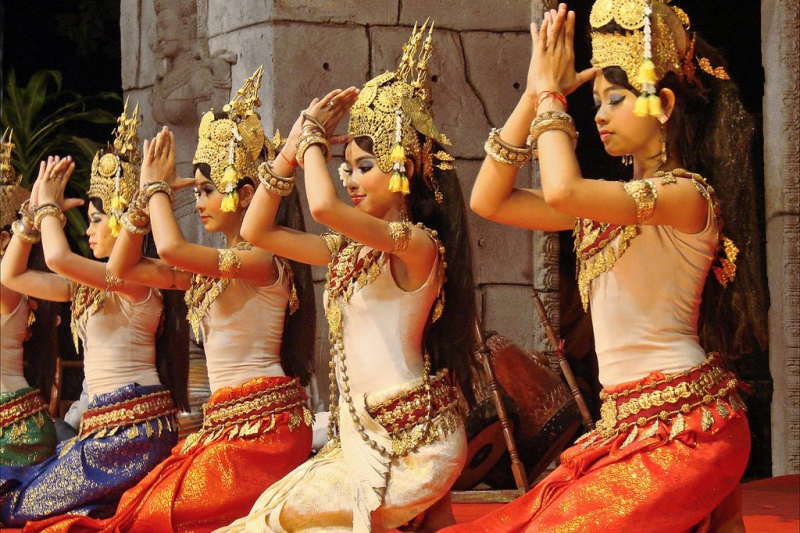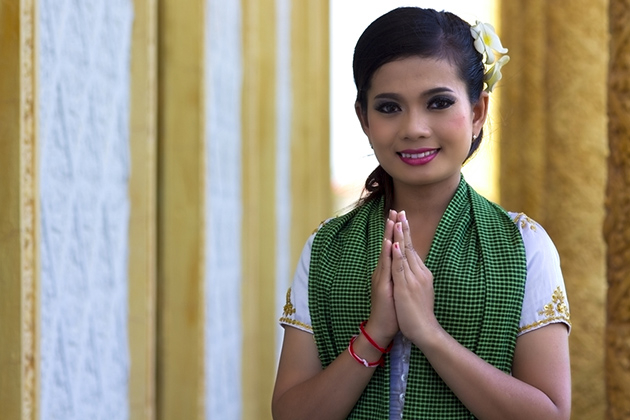Greeting Etiquette
The customary greeting for Cambodians is a prayer-like clasping of the palms. That is one of the lists of Cambodia's culture, customs, and etiquette. They bow gently and raise their hands to chest height. It is known as Som Pas. Generally speaking, the more respect is being offered, the higher the hands and lower the bow. Cambodians will say Som Pas and Choum Reap Sur when they meet (Hello). They will once more say Choum Reap Lir and Som Pas as they leave (Goodbye). Som Pas is a greeting and a way for Cambodians to show respect. It would be rude to not respond to a Som Pas when it is being used as a greeting; in Western society, it is equivalent to declining a handshake that has been extended.
Western cultural impact is now recognized in Cambodia. Men in Cambodia frequently shake hands. As Cambodians are not used to touching, especially those of the opposite sex, women frequently stick to the customary greeting and are hesitant to shake hands. Many Cambodian women in the United States still avoid shaking hands, particularly the older generation and recent immigrants.
When addressing someone formally, Cambodians use the titles Lok (Mr.) or Lok Srey (Mrs. ), followed by either the person's given name alone or both the given and family name. The family name is rarely used alone, unlike in the West. As an illustration, my name is Keo Mony. My given name is Mony, and my family name is Keo. Please address me as Mr. Mony.
Informally, Cambodians address older men as Ta (grandfather), Po (uncle), or Bang (brother) and older women as Yeay (grandmother), Ming (aunt), or Bang Srey (sister). In situations where one is unsure of the ages of the other participants, they are frequently employed to show respect for the person who may be the senior. In Cambodia, it would be considered impolite or otherwise inappropriate for a younger person to address an older person without using a title. A fifteen-year-old boy would address his thirty-year-old neighbor as Sokha Po Sokha or Bang Sokha, for example. Without the use of a title, those who are the same age or younger may be addressed by their given name.
Since this is no longer the custom, persons may now use these titles to greet others in public in order to express differences in social or professional status as well as seniority or age. For instance, while greeting their younger caseworker who works for the hospital, senior patients frequently use one of these terms.









